Speakers
Plenary Speakers
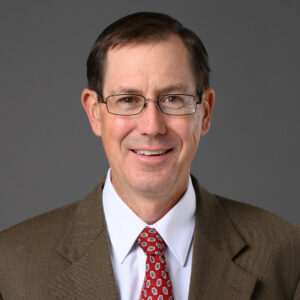 Matt Russell (Farm Service Agency)
Matt Russell (Farm Service Agency)
Iowa Farmers and Farm Programs: Powerful Public/Private Partnerships for Farmer Led Environmental Services
Matt Russell was appointed by the Biden Administration to serve as the State Executive Director of the USDA Farm Service Agency (FSA) in Iowa in November 2021. Russell earned a master’s degree in rural sociology from Iowa State University and a bachelor’s degree from Loras College. He has a passion for Iowa agriculture and rural America and has extensively written on the subject for local, statewide, and national publications
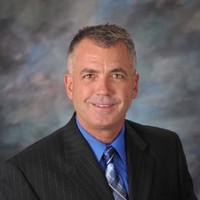 Michael A Jansen (Strand Associates, Inc.)
Michael A Jansen (Strand Associates, Inc.)
Bee Branch Creek Restoration – Community Values
Michael Jansen has served as Principal Project Engineer on the Bee Branch Creek Restoration consultant design team since 2008. As a lifelong area resident and community advocate, he considers it a privilege to share the stories of Bee Branch gained through his experiences with the visioning, planning, public engagement, design, and construction.
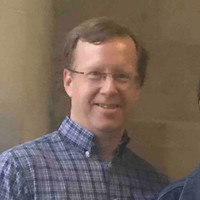 Steve Brown (City of Dubuque)
Steve Brown (City of Dubuque)
Bee Branch Creek Restoration – Community Values
teve Sampson Brown has served as the City of Dubuque Engineering’s Project Manager for the majority of the Bee Branch Creek Restoration. Steve brings a perspective on behalf of the City of Dubuque with a passion for attention to detail in the design, construction, operations and maintenance.
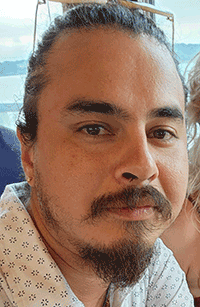 Derrick Kapayou
Derrick Kapayou
Impacts of subsistence gardens in 5 Indigenous communities of the US Midwest: Earth and People
Derrick Kapayou is a member of the Meskwaki Nation located in Central Iowa. He is in his 3rd year as a double master’s degree student at Iowa State University where he studies Sustainable Agriculture and Anthropology. His research focuses on Native American cultural connections to soil, as well as the ecological effects of the maize, bean, and squash (Three Sisters) polyculture method.
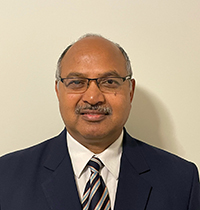 Udai Singh (Water Resources Director at the Mississippi Watershed Management Organization (MWMO)
Udai Singh (Water Resources Director at the Mississippi Watershed Management Organization (MWMO)
Building Innovative Stormwater Treatment Systems and Green Infrastructure Projects through Partnership, Collaboration, and Community Engagement to Protect and Improve the Water Quality of Mississippi River
Dr. Udai Bhan Singh is the Water Resources Director at the Mississippi Watershed Management Organization (MWMO) in Minneapolis, Minnesota, USA. He is also an adjunct professor in the Bioproducts and Biosystems Engineering Department at the University of Minnesota, St. Paul, Minnesota. Currently, Dr. Singh manages Water Resources Monitoring, Communications, and Administrative and Operations Program staff the MWMO. His area of work focus is on Water Resources Monitoring, Watershed Modeling and Management, Soil and Water Conservation Research, Communications, and Organizational Development and Management.
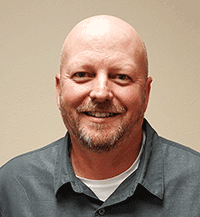 Mike Steuck (IDNR)
Mike Steuck (IDNR)
The Power of Partnerships
Mike Steuck has a varied and extensive background with the Iowa DNR and is currently the Northeast Regional Fisheries Supervisor where he oversees management of the cold and warmwater fisheries resources in 15 counties, including two fisheries management teams and three trout hatcheries. A native of Dubuque, Mike is an avid angler, targeting walleye, crappie and trout every chance he gets. Mike has a passion for Iowa’s natural resources and strives to continually protect and improve natural resources and angling opportunities in Iowa.
Breakout Speakers
Tim Olson (Bolton & Menk)
Paved Wetlands: Restoring Flood Storage Post Urbanization
Tim Olson is a principal water resources engineer with more than 15 years of experience. He specializes in water quality improvements, regional drainage planning, water resources funding, and partnership development. Growing up in Minnesota, land of 10,000 lakes, Tim is passionate about water resources education and volunteers in a variety STEM events.
Ryan Benjegerdes (Bolton & Menk)
Paved Wetlands: Restoring Flood Storage Post Urbanization
Ryan Benjegerdes is a water resources engineer at Bolton & Menk in Ames, IA. He provides expertise in the areas of stormwater management, stream restoration, floodplain management, non-point source nutrient reduction, and regulatory permitting.
Daniel Haug (Prairie Rivers of Iowa)
Building a locally-led water monitoring program
Dan Haug is the Water Quality Specialist for Prairie Rivers of Iowa, a 501(c)(3) non-profit in Ames. Prairie Rivers facilitated the development of a 10-year plan for water monitoring in Story County and has been analyzing the data.
Tracy Peterson (City of Ames)
Building a locally-led water monitoring program
Tracy Peterson is the Municipal Engineer for the City of Ames, since 2005, managing large infrastructure projects and the city’s stormwater program. She has been an active part of collaborative efforts to improve water quality and reduce flooding in the Ioway Creek and South Skunk River watersheds.
Maryann Ryan (City of Ames)
Building a locally-led water monitoring program
Maryann Ryan is the laboratory manager for the City of Ames Water and Pollution Control Department, since 1997. In addition to source water and wastewater testing, the lab has collected 18 years of weekly data from the South Skunk River, and is now testing streams around Story County.
Sara Carmichael (Story County Conservation)
Building a locally-led water monitoring program
Sara Carmichael, previously the executive director of Iowa Rivers Revival, joined Story County Conservation in 2021 to coordinate the county’s involvement with multiple watershed initiatives. She is organizing the county’s volunteer monitoring program.
Tori Nimrod (Northeast Iowa RC&D)
Northeast Iowa Watershed Guardian Program’s Innovative Model for Urban Stormwater Education
Tori Nimrod is the Environmental Education Coordinator and Upper Wapsipinicon River Watershed Coordinator at Northeast Iowa Resource Conservation and Development (RC&D). Nimrod has been working to improve water quality and reduce flooding in Northeast Iowa through watershed and community planning, and environmental education.
Bekir Z Demiray (University of Iowa)
FloodGame: A Serious Game on Flood Mitigation for K-12 and Public Education
Bekir Demirayis a Ph.D. student in Informatics at the University of Iowa with a data-centric CS background. He has worked on test-quality optimization in real-time integrated circuits production. His current research focuses on the application of deep learning to environmental problems. From time to time, he works on web-based implementation projects such as FloodGame.
Teresa Stadelmann (HR Green, Inc.)
Davenport’s Flood Resiliency Plan
Teresa serves as the Operations Manager for the Water Resources practice at HR Green. She manages multiple projects in the areas of flood mitigation, stormwater design, and green infrastructure. Ms. Stadelmann is a registered professional engineer and a certified floodplain manager. She also serves on the Board of the Iowa Floodplain and Stormwater Management Association (IFSMA).
Clay Merritt (City of Davenport)
Davenport’s Flood Resiliency Plan
Clay serves as the Assistant Public Works Director for the City of Davenport, Iowa. He oversees the planning, budgeting, and implementation of the City’s six-year Capital Improvement Plan while also managing multiple divisions with the Public Works Department. In addition, he manages several key initiatives/projects and serves as a liaison to various state and federal departments. Mr. Merritt is a member of the American Public Works Association (APWA) and International City/County Management Association (ICMA).
Gabriele Villarini (University of Iowa)
Iowa’s Flood Future
Dr. Gabriele Villarini is a Professor in the Department of Civil and Environmental Engineering at the University of Iowa. He is also the Robert and Virginia Wheeler Faculty Fellow in Engineering. Gabriele is the director of IIHR—Hydroscience & Engineering and a member of the Iowa Flood Center.
Chris E Kahle (Iowa DNR)
Iowa DNR Statewide Two Dimensional Base Level Engineering (2D BLE) Update
Chris Kahle is the Technical Lead for the Iowa DNRs floodplain mapping program. Chris has had many different jobs in the GIS field and has been in the Iowa DNRs GIS section since 2002, working in floodplain mapping since 2010.
Padraic O’Shea (U.S. Geological Survey)
Peak-Flow Frequency Analysis and Nonstationarity in Iowa
Padraic O’Shea has been a statistician with the U.S. Geological Survey since 2014. Padraic’s work with the USGS has been related to estimating the natural flow of rivers and streams in Iowa and across the Midwest.
Dan Gilles (Iowa Flood Center )
The Missouri River Flood Information System
Dan Gilles has been a Water Resources Engineer with the Iowa Flood Center since 2010. He has experience developing 1D and 2D hydraulic models and flood inundation maps for IFC’s Iowa Flood Information System (IFIS) and Iowa DNR’s Statewide Mapping Project. He has also been involved with the Iowa Watershed Approach project investigating strategies at the watershed-scale to reduce flooding.
Lindsey Schafer (USGS – Central Midwest Water Science Center)
Declining Nutrient Concentrations in Iowa Rivers, 2002-2017
Lindsey Schafer is a Hydrologist with the U.S. Geological Survey Central Midwest Water Science Center in the Urbana, Illinois office. She is currently involved in various water quality studies that include water quality sampling, laboratory and field instrumentation, and data analysis. Lindsey’s previous research included the development of statistical models for predicting the hydrology of wetland mitigation sites and the prediction of mine pool formation in underground coal mines
Ivo Lopez (Snyder & Associates, Inc.)
The race to protect and improve urban streams—Sugar Creek story
Dr. Ivo López is an Aggie-Gopher from Snyder & Associates and is a professional engineer with over 28 years of consulting experience from project management to planning, design, modeling, permitting, and construction guidance and administration. He is a water steward with extensive experience in water resources engineering, watershed/stormwater management, stream restoration, natural resources and land-use planning, and consensus building with private and public stakeholders in urban and rural environments.
Jennifer Welch (Polk SWCD)
The race to protect and improve urban streams—Sugar Creek story
Jennifer Welch from Polk SWCD/ IDALS Urban Conservation Program is a leader in central Iowa for conservation, watershed, and stormwater programs, having served in multiple roles, including helping to foster key partnerships like Watershed Management Authorities, and serving as SRF Sponsored Projects technical advisor. She has been instrumental in the success of many natural restoration projects, including wetlands, streams, and water quality best management practices.
Dan Kirby (IDNR)
Floodplain Restoration on Mill Creek in Jackson County, Iowa
Dan Kirby is a Fisheries Biologist with the Iowa DNR working in northeast Iowa. His work focuses on improving aquatic habitat and fishing resources in the region.
Matthew J McDonald (IDALS)
Building Water Quality and Soil Conservation Infrastructure in Iowa
Matt McDonald works as the Statewide Projects Coordinator for the Water Quality Initiative with the Iowa Department of Agriculture and Land Stewardship. He works with Iowa’s Water Quality Project Coordinators around the State and with Organizations and Landowners that are interested in installing Water Quality Infrastructure.
Tanner Puls (IDALS)
Building Water Quality and Soil Conservation Infrastructure in Iowa
Tanner Puls works as the Statewide Edge of Field Coordinator for the Iowa Department of Agriculture and Land Stewardship. He works with Project Coordinators and IDALS staff around the State to increase adoption of edge of field practices, both through traditional methods and the batch and build model.
Dr. Raymond Meylor
FARMING THE WATERSHEDS by Veterans
Ray Meylor DC DACBOH hsd s specialty in orthopedics and occupational health, and was raised on a farm. He is a skilled volunteer creating school garden and has partnered with ISU Extension on STEM projects.
Paul Havran (USAF)
FARMING THE WATERSHEDS by Veterans
SMSgt Paul Havran active duty USAF. Paul is transitioning to farming for military retirement. He has a Masters ED, is a licensed Iowa teacher, and was raised on a farm.
Ross Evelsizer (Northeast Iowa RC&D)
Multicropping Iowa: Exploring multi-cropping as an effective and economical watershed management tool.
Ross Evelsizer is the Natural Resources Projects Director at Northeast Iowa RC&D. Evelsizer has helped develop watershed resiliency plans and implemented conservation projects in the Turkey River, Upper Wapsi, and Upper Iowa River Watersheds in Northeast Iowa.
Jon Rosengren (Bolton & Menck)
Streamlining Nutrient Removal Wetlands: A Targeted Approach, from Concept to Construction, to Build Wetlands in Bulk
Jon Rosengren is a project manager for Bolton & Menk and has helped drainage districts in more than 30 Iowa counties with repairs, improvements, and other needs, along with design of approximately 25 agricultural wetlands and review of nearly 150 potential additional sites. He is passionate about working to improve water quality while helping to make farmers more profitable at the same time.
Shawn Richmond (INREC)
Streamlining Nutrient Removal Wetlands: A Targeted Approach, from Concept to Construction, to Build Wetlands in Bulk
Shawn Richmond is the Director of Environmental Services for the Iowa Nutrient Research & Education Council (INREC) where he coordinates environmental programs and services on projects including environmental progress measurement, technology development, and associated outreach and education efforts. Prior to his work at INREC, he worked at the Iowa Department of Agriculture and Land Stewardship (IDALS), managing the Iowa Conservation Reserve Enhancement Program, as well as work on the Iowa Nutrient Reduction Strategy, and Gulf of Mexico Hypoxia Task Force.
Matt Frana (Upper Iowa Watershed Project)
Flood Mitigation Site Investigation in a Karst Landscape
Matt Frana has spent nearly 5 years as the project coordinator for the Upper Iowa Watershed Project in association with the Iowa Watershed Approach. Prior to that, he spent 7 years with the NRCS as a Soil Conservationist, Wetland Specialist, and Habitat specialist.
Meghan Funke (WHKS & Co.)
The Middle Cedar River Watershed: An Iowa Watershed Approach Success Story
Meghan is the Water Resources Team Lead at WHKS and oversees their hydraulic modeling and environmental review services and the design and implementation of river restoration projects.
Lou Wehrspann (WHKS & Co.)
The Middle Cedar River Watershed: An Iowa Watershed Approach Success Story
Lou is a civil engineer at WHKS and leads the design of wetland restorations, agricultural and stormwater BMPs, and municipal infrastructure improvements.
Logan Drake (University of Iowa)
Lessons learned in the evaluation of the Iowa Watershed Approach
Logan Drake, a graduate assistant at the University of Iowa Center for Evaluation and Assessment, joined the Iowa Watershed Approach evaluation team in early 2021.
Antonio Arenas (Iowa State University)
Measuring Flood Reduction Benefits using GHOST: The Iowa Watershed Model
Dr. Antonio Arenas serves as an assistant professor at Iowa State University (ISU) in the Department of Civil, Construction, and Environmental Engineering. His current research focuses on developing and using fully coupled surface-subsurface watershed models to evaluate flood mitigation strategies and study the fate and transport of nutrients.
Cole Dutter (Iowa State University)
Environmental and Agronomic Impacts of Prairie Strips
Cole Dutter is a PhD student at Iowa State University in the Department of Agronomy.
Eric Henning (Iowa State University)
Environmental and Agronomic Impacts of Prairie Strips
Antonio Arenas (Iowa State University)
Environmental and Agronomic Impacts of Prairie Strips
Dr. Antonio Arenas is an assistant professor at Iowa State University in the Department of Civil, Construction, and Environmental Engineering.
Karen O’Brien (Truterra)
The Evolving Carbon Market: Opportunities and Challenges for both farmers and companies
Ms. O’Brien joined Truterra in 2022, where she leads the Carbon Operations team to enable regenerative agriculture and cultivation practices to be accurately accounted for and incentivized.
Adam Kiel (Soil & Water Outcomes)
The Evolving Carbon Market: Opportunities and Challenges for both farmers and companies
Adam Kiel is a managing director of the Soil and Water Outcomes Fund, an ecosystem service program that operates across Iowa and other states. Adam has over 20 years of experience in the field and held a prior role as Director of Conservation for the Iowa Soybean Association. Adam has also held positions with the Iowa Department of Natural Resources and National Park Service.
Alyssa Cho (Bayer)
The Evolving Carbon Market: Opportunities and Challenges for both farmers and companies
Alyssa Cho is the Sustainable Agriculture Field Manager for Bayer Carbon. Alyssa leads a team of field-based sustainable systems agronomists who are responsible for supporting growers as they transition to sustainable practices. Alyssa has been with Bayer since September 2021. Prior to Bayer, Alyssa was the Agronomy Lead for a start-up in St. Louis and a professor with research, extension and teaching responsibilities in sustainable cropping systems.
Amy Foster (City of Coralville)
A Closer Look at Eastern Iowa Post Con Ordinances: Coralville, Davenport, & Dubuque Area
Amy Foster is the Stormwater Coordinator for the City of Coralville
Amy Kay (City of Davenport)
A Closer Look at Eastern Iowa Post Con Ordinances: Coralville, Davenport, & Dubuque Area
Amy Kay is the Clean Water Program Manager for the City of Davenport
John Wiley (Dubuque Co. SWCD)
A Closer Look at Eastern Iowa Post Con Ordinances: Coralville, Davenport, & Dubuque Area
John Wiley is the Urban Coordinator for Dubuque County SWCD
Mary Beth Stevenson (City of Cedar Rapids)
Building Bridges: Connecting Water Utilities & Farmers to Address Nutrient Pollution
Mary Beth Stevenson is the Watersheds and Source Water Program Manager at the City of Cedar Rapids Utilities Department.
Jennifer Terry (Des Moines Water Works)
Building Bridges: Connecting Water Utilities & Farmers to Address Nutrient Pollution
Jennifer Terry is the External Affairs Manager at the Des Moines Water Works.
Ashley Geesman (City of Ames)
Building Bridges: Connecting Water Utilities & Farmers to Address Nutrient Pollution
Ashley is currently an Environmental Engineer with the Water & Pollution Control Department for the City of Ames. Her work includes support for their Water Treatment Plant, Water Pollution Control Facility, Meter and Laboratory Divisions with project design, project management, and internal studies.
Marty Braster (Rathbun Regional Water Association)
Building Bridges: Connecting Water Utilities & Farmers to Address Nutrient Pollution
Marty Braster is Support Services Officer at Rathbun Regional Water Association
V Fixmer-Oraiz (Astig Planning LLC)
Flood Resilience Action Plan Guidebook for Planners
V Fixmer-Oraiz is the CEO & Founder of Astig Planning, a community and environmental planning firm located in eastern Iowa. They began their planning career in watershed planning and have since been able to offer planning services that approach climate change impacts at the intersections of racial equity and social justice.
Asmita Poudel (Astig Planning LLC)
Flood Resilience Action Plan Guidebook for Planners
Asmita Poudel is an Environmental Planner at Astig Planning. She has experience in several planning and design works through two years of involvement in academia which includes experiences with watershed and community planning, water quality, hydrology, and ecological habitat protection and preservation.
Staci Williams (ISG)
Integrating Rivers and Streams as a Catalyst for Community Revitalization and Resiliency
Staci brings nearly 15 years working to connect communities to their rivers and other natural resources. As ISG’s Water Resources and Community Engagement Lead, she focuses on incorporating conservation-minded design and recreation as part of larger planning efforts.
Zaid Alsamawi (City of Coralville)
Evolution of Bioretention Cell Design Over the Past 10 Years
Zaid Alsawaumi is an Assistant City Engineer for the City of Coralville
Aaron Gwinnup (City of Iowa City)
Evolution of Bioretention Cell Design Over the Past 10 Years
Aaron Gwinnup is a Water Resources Engineer for EOR in Iowa City
Jennifer Welch (Polk Co. SWCD)
Evolution of Bioretention Cell Design Over the Past 10 Years
Jennifer Welch is an Urban Conservationist with Polk Co. SWCD and the IDALS Urban Conservation Program
Catherine DeLong (Iowa State University Extension and Outreach)
The Conservation Practitioner Poll: An Annual Survey to Strengthen the Conservation Community
Catherine DeLong is the Water Quality Program Manager for Iowa State University Extension and Outreach. She works statewide to bring people together to share resources, ideas and perspectives about water quality, and to help Iowans understand the role they can play in the future of Iowa’s water.
Jeff Walters (Snyder & Associates, Inc)
Public Engagement and Planning Leads to Successful Des Moines River Restoration Efforts in Fort Dodge, IA
Jeff Walters is a principal environmental scientist at Snyder & Associates with a BS in Agronomy from Iowa State University. Jeff was born and raised in Fort Dodge and has enjoyed working on the planning projects along the Des Moines River.
Stephen K Hopkins (Iowa Dept of Natural Resources)
Assessing How Signs Build Awareness of Creeks and Watersheds in Iowa
Steve Hopkins is Nonpoint Source Coordinator with the Iowa Department of Natural Resources’ Water Quality Improvement Section, where he administers Iowa’s Section 319 grant program that funds watershed projects and statewide water quality projects. With DNR since 2000, Steve previously supervised the DNR Water Supply Operations Section and worked in the DNR’s private water well and septic system program prior to becoming the Nonpoint Source Coordinator in 2007.
Nathan Stevenson (ISU Ext)
Assessing How Signs Build Awareness of Creeks and Watersheds in Iowa
Nathan Stevenson is a Visual Outreach Specialist and Educator for the Iowa Learning Farms and Water Rocks! programs based on the campus of Iowa State University. He has been with Iowa State University Extension and Outreach since 2011.
Elliot S Anderson (University of Iowa)
Monitoring Phosphorus and Turbidity during High Flows in Eastern Iowa
Elliot Anderson is a third-year PhD Candidate within the Civil and Environmental Engineering Department at the University of Iowa.
Edward A Matthiesen (Stantec)
Iron sand biochar filters for phosphorus and bacteria removal in urban areas
Ed Matthiesen is a civil engineer and graduate of Luther College and the University of Minnesota. He has worked in the water resources field for more than 40 years.
Antonio Mallarino (Iowa State University)
Performance of In-Field Management Practices at Reducing Dissolved Phosphorus Loss from Iowa Corn and Soybean Fields
Antonio Mallarino is Professor and Nutrient Management Research and Extension Specialist at the Department of Agronomy, Iowa State University. His water resources work focuses on crop, soil, fertilizer, and manure management practices impacts on phosphorus loss from agricultural fields and water quality. He contributed to the development of the Iowa Phosphorus Index and is member of the science team of the Iowa Nutrient Reduction Strategy.
Paul Miller (IDALS)
What’s New with ISWMM
Paul is the State Urban Conservationist with the Iowa Department of Agriculture and Land Stewardship and leads the urban conservation program team that provides technical and educational assistance on stormwater management and urban conservation practices state wide. Previously he worked as a soil conservationist with the USDA Natural Resources Conservation Service in 5 offices across the state.
Jennifer Welch (Polk SWCD)
What’s New with ISWMM
Jennifer Welch has been an Urban Conservationist with the Polk Soil & Water Conservation District since 2001. As part of the IDALS Urban Conservation Program, Jennifer is a leader in central Iowa for conservation, watershed, and stormwater programs including serving as an SRF Sponsored Projects technical advisor. She works with cities, consultants, and landowners to promote and implement urban stormwater policies and practices. She has been involved with the development of the Iowa Storm Water Management Manual since its inception.
Breanna Marmur (Iowa State University)
Using the Storm Water Management Model to examine effects of climate change on residential areas with distributed BMPs
Bree Marmur is a Ph.D. candidate in the Department of Natural Resource Ecology and Management at Iowa State. She conducts research on urban hydrology and the impacts of stormwater best management practices.
Sandy Pumphrey (HR Green)
Data-based Stormwater Master Planning in Oskaloosa, IA.
Sandy Pumphrey, HR Green – Sandy is a Project Manager with a varied engineering and management experience across private, public and non-profit sectors. Sandy has over 10 years of municipal engineering experience and has managed many varied projects and ad-hoc initiatives including stormwater and sanitary sewer CIP projects and utility ordinance amendments. Since starting his career, Sandy has taken a keen interest in leveraging creative ways to reduce flood risk to reduce loss of life and property damage, along with improving water quality in urban environments.
Sean Murphy (City of Oskaloosa)
Data-based Stormwater Master Planning in Oskaloosa, IA.
Sean Murphy, City of Oskaloosa – Sean is the Senior Engineer Technician for the City of Oskaloosa. Sean has been with the City for 5 years, and has planned, designed, and managed sanitary sewer reconstruction and lining projects, storm sewer reconstruction projects, and street reconstruction projects in various locations throughout the city. He is also involved with long-term financial planning for the city’s projects including the development of a comprehensive Stormwater Master Plan and the construction of a new Wastewater Treatment Facility.
Chris Jones (IIHR Hydroscience & Engineering, University of Iowa)
New Water Quality Index to Evaluate Historical Mississippi River Water Quality Data
Chris Jones is a Research Engineer with IIHR Hydroscience & Engineering. His research interests include contaminant hydrology, in situ water monitoring, and municipal water supply.
Bartlett Durand (Sand County Foundation)
The Mighty Mississippi — what can we do to revive Old Man River?
Bartlett works with the Sand County Foundation and Environmental Policy Innovation Center to facilitate agreements that allow municipalities and utilities to achieve water quality goals by working with farmers and agriculture groups on a watershed basis. Bartlett’s work is focused on developing documents that local government and state agencies can use to reach agreements that create enough certainty for cities to invest and sufficient clarity for regulators that water quality goals will be met in the future.
Keith Schilling (Iowa Geological Survey)
Potential for Natural Infrastructure to Reduce Flood and Water Quality Risks in the Mississippi River Basin
Keith Schilling, Ph.D., is the State Geologist and Director of the Iowa Geological Survey at the University of Iowa.
Shannon Meppelink (U.S. Geological Survey)
Investigating the Prevalence of “Forever” Contaminants (Microplastics and PFAS) in Small Agricultural Streams: The Importance of a Multi-matrix Approach
Shannon Meppelink is a Physical Scientist with the USGS Central Midwest Water Science Center. She works on a range of projects concerning surface and groundwater quality in Iowa and nationally.
Dana Kolpin (U.S. Geological Survey)
Investigating the Prevalence of “Forever” Contaminants (Microplastics and PFAS) in Small Agricultural Streams: The Importance of a Multi-matrix Approach
Dana is a research hydrologist with the USGS. His research interests include the fate, transport, and effects of environmental contaminants and has authored or co-authored over 230 papers on this topic. He was the project lead of the USGS CECs in the Environment Project and is now project lead of the newly formed Food Integrated Science Team for the USGS.
Jason A Palmer (Iowa DNR)
Moving Towards a Better Understanding of Bacterial Impairments at Public Beaches in Iowa
Jason Palmer is a Natural Resource Biologist with the Iowa Department of Natural Resources. He obtained and Masters in water resources from Iowa State University and has worked with the Iowa DNR Water Quality Improvement section for the last 14 years.
Greg LeFevre
Changing Complex Exposure Mixtures in a Temperate Region Wastewater Effluent-Dominated Stream in Iowa
Greg LeFevre is an assistant professor in Civil & Environmental Engineering at the University of Iowa and IIHR-Hydroscience and Engineering, where is lab focuses on emerging contaminant fate and transformation.